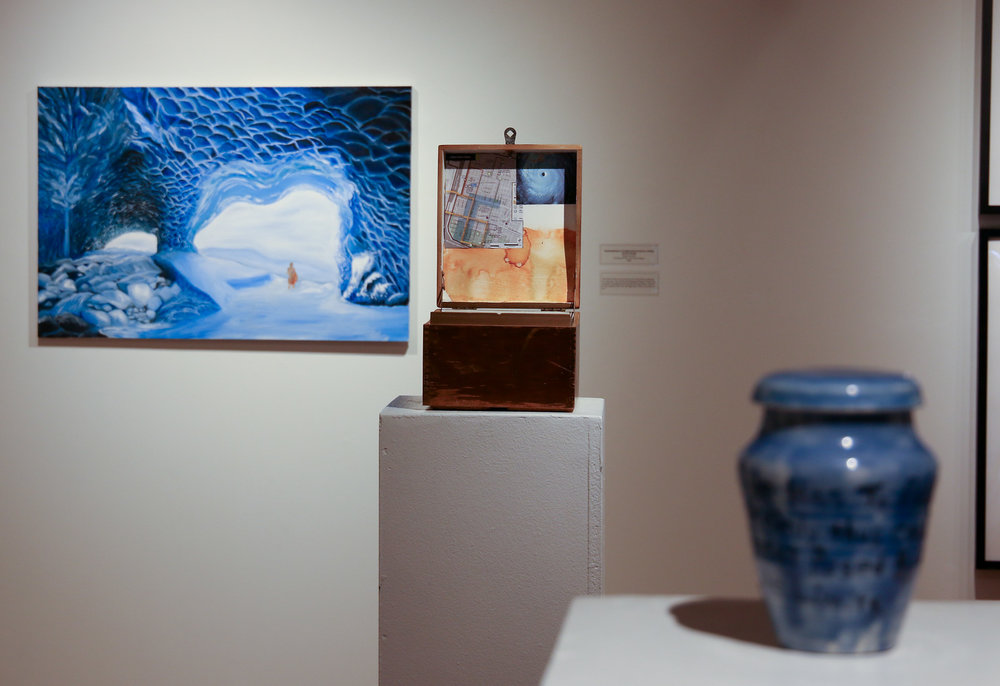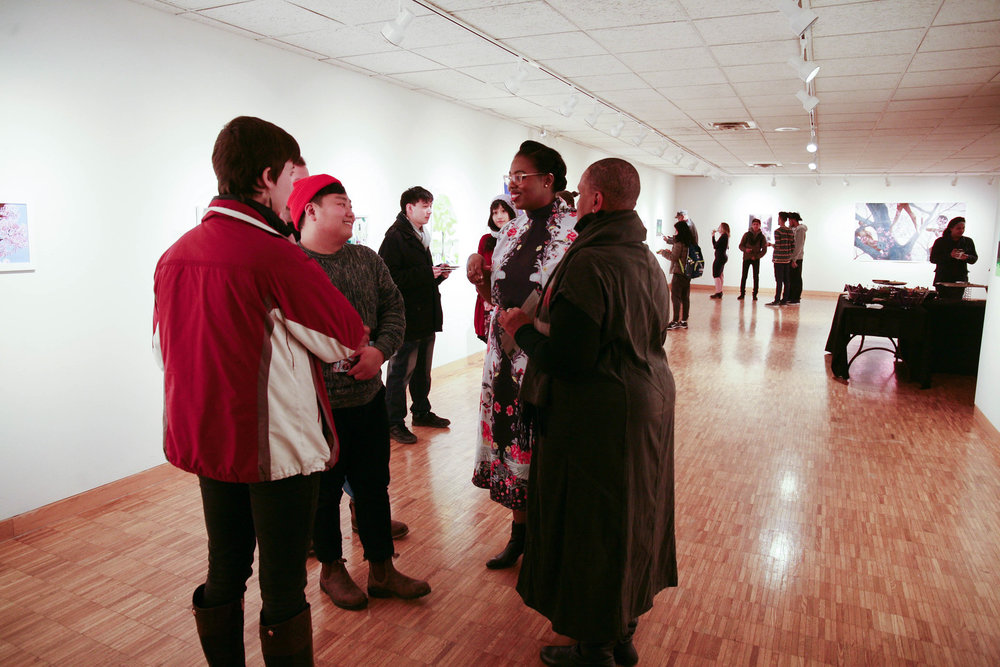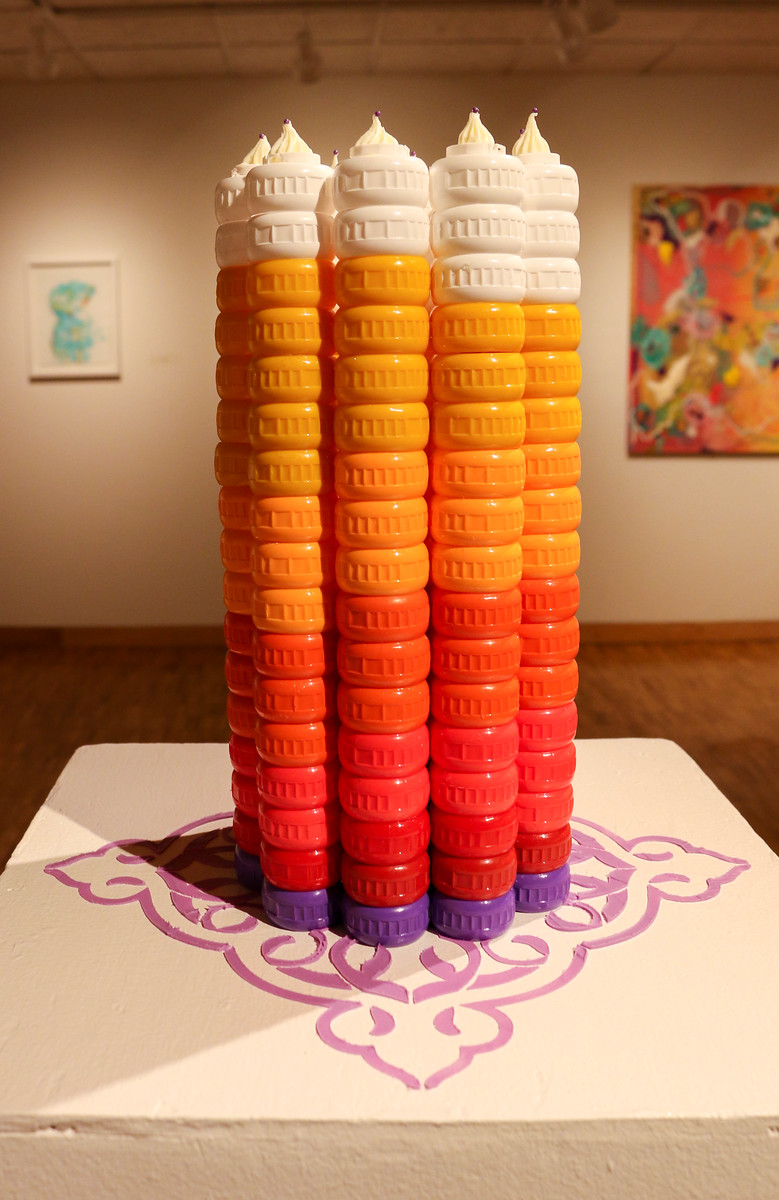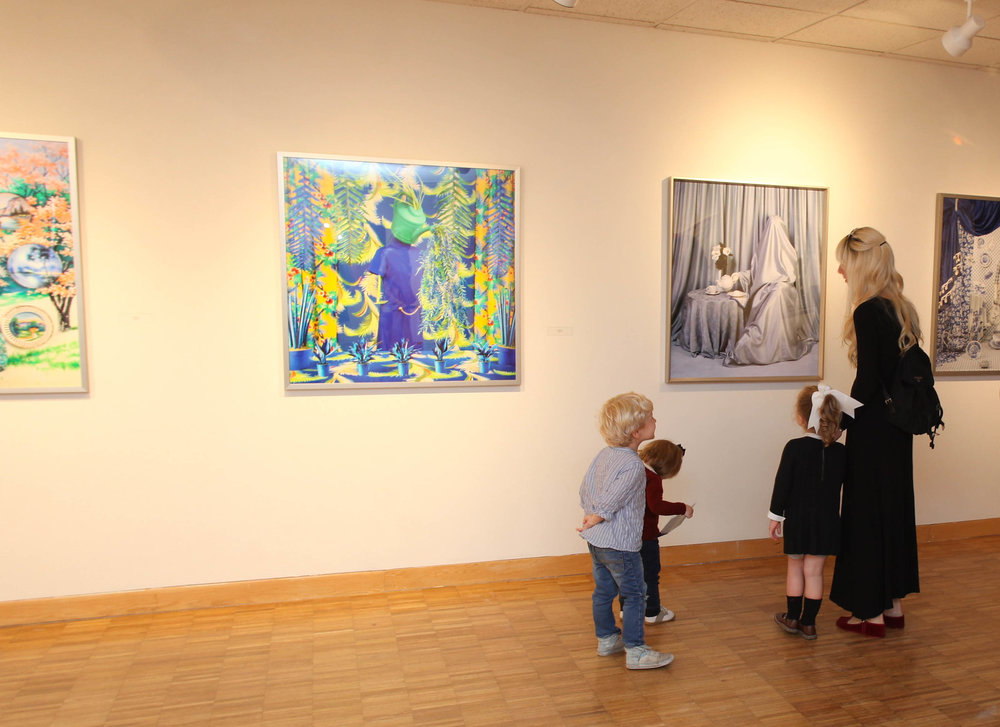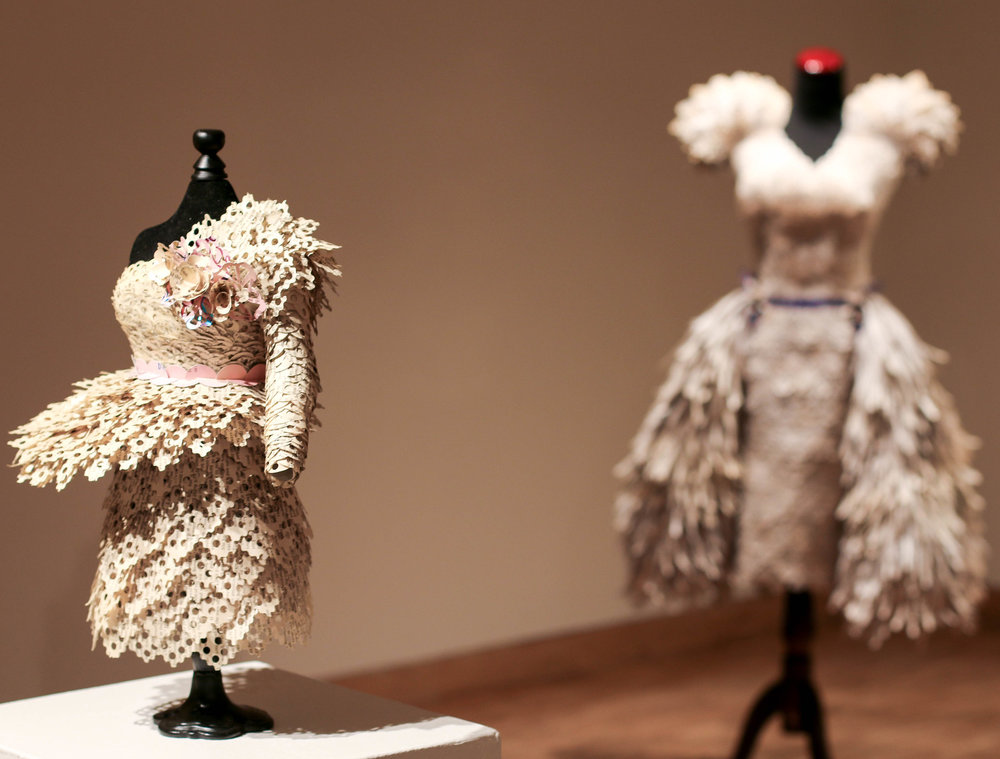Tucked away in Norris, the Dittmar Memorial Gallery brings together community members in creative spaces. Following a year of distinctive exhibits from regional artists, Dittmar will feature Northwestern Art Theory & Practice seniors in upcoming show “Feelings?” The work of these three students investigates identity construction and how we interact with the world around us.

‘How do our memories shape us?’ is the central question of Imprints of the Mind, the April 7 – 28 exhibit. Artists in the Evanston and Northwestern community submitted work to answer this timeless question in collage, paint, and sculpture. The April 28 closing reception for the exhibit will present the competition winners and serve light refreshments from 6-8 p.m.
Before Imprints of the Mind, Dittmar hosted Brittney Leeanne Williams’ exhibit Neither Free | Nor, which investigates the suffering and transcendence of the Black body. During her talk, Williams built on visitors’ questions to create an intimate conversation with friends of the artist, community members, and students.
Embracing the Chaos, Erin Elizabeth’s work questioned the purpose of celebration and meaning people assign to experiences like a celebration. Elizabeth employed unique media in her provocations, from gold leaf to cake.

The Dittmar student team makes sure to host a variety of exhibits, said Claire Toomey, a Dittmar gallery assistant and Medill first-year who is part of the artist selection process. As an assistant, Toomey also coordinates event requests, helps with the installation process, and files submissions. If you missed the fall’s exhibits, you can browse photos from Build Her a Myth and Anonymous Women here.
Throughout the year, Dittmar not only exhibits “emerging and underrepresented” work in exciting mediums (yes, even cake and confetti), but also hosts open mics, artist talks, and events. Interested in hosting an event in this unique space? Submit this request form and review the space guidelines.
